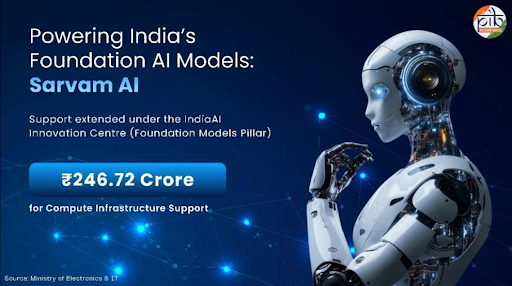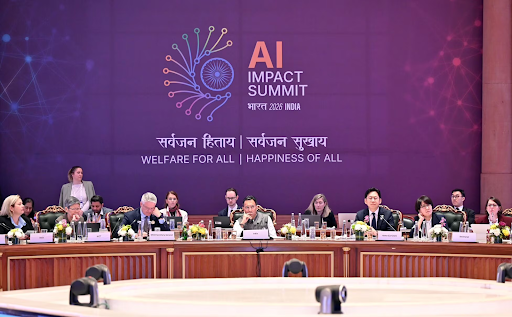



Bengaluru's Quantum City is a strategic initiative aiming to establish India as a global leader in frontier technologies. It promotes a collaborative ecosystem of academia, startups, and industry, accelerating research in quantum computing, communication, and sensing.

Copyright infringement not intended
Picture Courtesy: HINDUSTANTIMES
The Karnataka government has allotted land in Bengaluru, for developing India’s first Quantum City (Q-City), to build a $ 20 billion quantum economy by 2035.
It is a planned, integrated hub designed to drive innovation, research, and commercialization in the field of quantum technology.
These hubs bring together academic institutions, businesses, startups, and research facilities to promote a collaborative ecosystem for developing advanced quantum technologies.
|
What is quantam technology? Quantum technology uses the rules of quantum mechanics (like superposition and entanglement) to create devices with extraordinary power. Core principles
Key applications
|
State-of-the-Art Laboratories
Advanced facilities for research in quantum computing, communication, and sensing, enabling breakthroughs in quantum algorithms and hardware.
Incubation Facilities for Startups
Dedicated spaces to nurture quantum startups.
Academic-Industry Collaboration
Partnerships with institutions like the Indian Institute of Science (IISc) and Raman Research Institute (RRI) to bridge research and practical applications.
Production Clusters
Infrastructure for manufacturing quantum hardware, processors, and accessories, including India’s first Quantum Hardware Park and a dedicated FabLine.
R&D Clusters with HPC Integration
Collaboration with quantum high-performance computing (HPC) data centers to support advanced simulations and applications.
The NQM, approved in April 2023, with a budget of ₹6,003.65 crore for 2023–2031.
Implemented by the Department of Science & Technology, it aims to make India a global leader in quantum technology.
Key Objectives
Implementation
Significance
The NQM supports sectors like healthcare, defense, energy, and data security by promoting innovation in quantum computing, secure communication, and precision sensing. It aligns with national priorities like Digital India and Make in India.
Enhanced Computing Power: Quantum computers solve complex problems exponentially faster, aiding drug discovery, climate modeling, and optimization.
Secure Communication: QKD ensures unhackable networks, vital for defense and cybersecurity. For example, India’s planned quantum satellite will secure communications over 500 km.
Precision Sensing: Quantum sensors enable early disease detection and environmental monitoring.
AI and Machine Learning: Quantum algorithms improve AI model efficiency, benefiting finance and governance.
Hardware Dependence: India relies on foreign quantum chips, limiting self-reliance. QpiAI’s “Indus” uses imported qubits.
High Costs: Building quantum infrastructure requires significant investment.
Talent Retention: Brain drain remains a concern, Indian quantum researchers working abroad due to better opportunities.
Environmental Sensitivity: Qubits are prone to errors from temperature or magnetic interference, requiring advanced facilities.
Ethical Risks: Quantum-powered AI could lead to privacy issues or unintended consequences, necessitating ethical guidelines.
Boost Indigenous Hardware: Accelerate domestic qubit fabrication through the FabLine and partnerships with DRDO and ISRO.
Increase Funding Access: Expand the Quantum Venture Capital Fund and reduce bureaucratic hurdles for startups.
Retain Talent: Offer competitive incentives and global exposure to retain researchers.
Address Public Concerns: Balance quantum investments with infrastructure improvements to maintain public support.
Ethical Frameworks: Develop guidelines for quantum technology use, ensuring privacy and security, as highlighted by global quantum forums.
Quantum City in Bengaluru marks a bold step toward positioning India as a global quantum leader. While challenges like hardware dependence and high costs persist, Bengaluru’s innovation ecosystem provides a strong foundation. By addressing the hurdles, Quantum City can transform India’s technological landscape, securing its place in the global quantum revolution.
Source: HINDUSTANTIMES
|
PRACTICE QUESTION Q. A 'Quantum City' is more than just a research hub; it is an ecosystem. Critically analyze. 150 words |
A Quantum City is an integrated ecosystem for quantum technology, bringing together research, industry, and academia in one location.
It will offer state-of-the-art labs, research facilities, and a collaborative environment for startups, industries, and academic institutions.
NQM is a Union government-funded initiative to accelerate research, development, and commercialization of quantum technologies in India.







© 2026 iasgyan. All right reserved